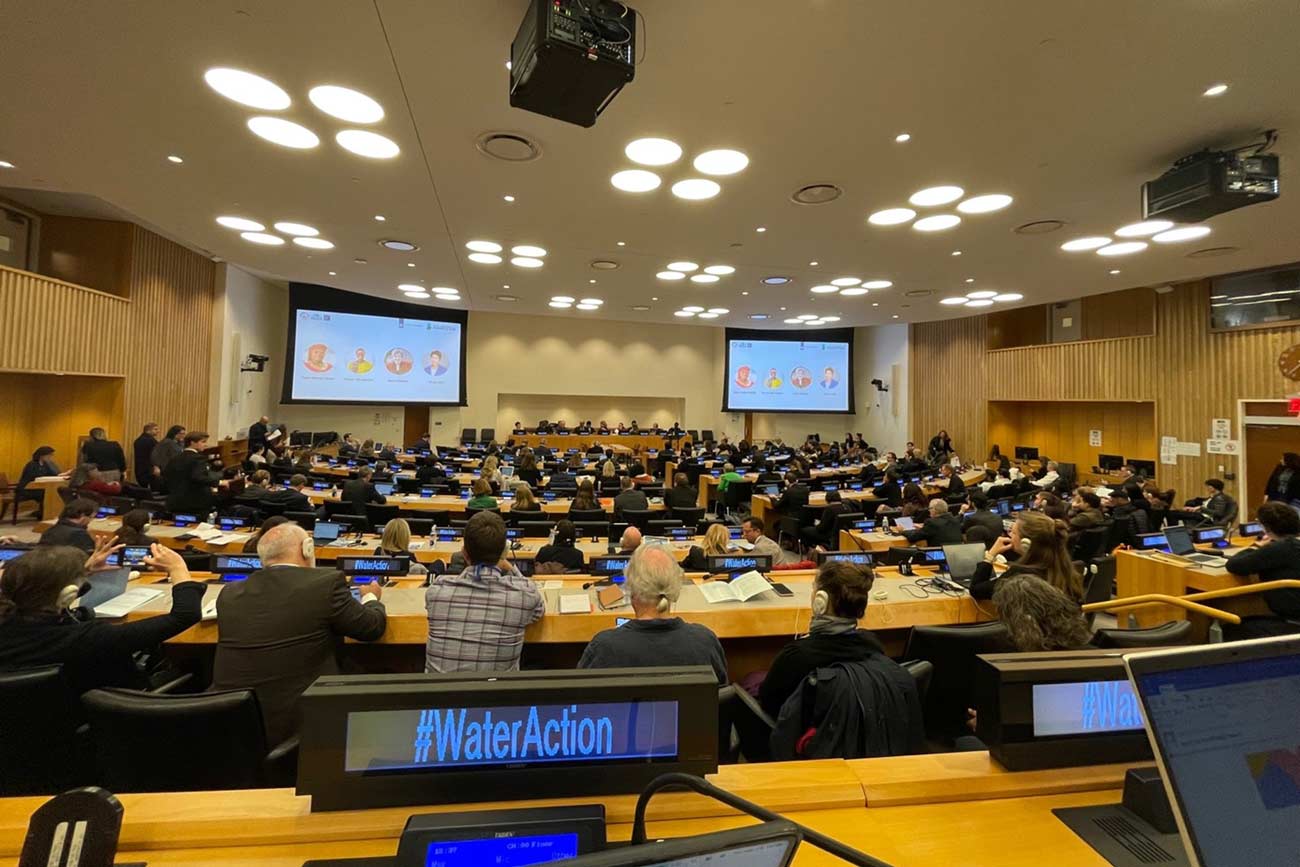WFF co-organizes special event on “The Economics of Water” at the 2023 UN Water Conference

The World Food Forum (WFF) co-organized a special event at the UN Water Conference on 23 March, together with several partners including UN-Habitat, the Organisation for Economic Co-operation and Development (OECD), MetaMeta, WaterworX, International Association of Students in Agriculture and Related Sciences (IAAS), C40 Cities, Dutch Water Authorities, Global Commission on the Economics of Water (GCEW) and others.
The event highlighted the urgent actions that need to be taken to address the ongoing global water crisis. Without immediate change, the water crisis not only endangers our ability to deliver on the human right to clean and safe water and sanitation, but virtually all the Sustainable Development Goals (SDGs). No person, place, economy or ecosystem will be spared. In line with this, the Government of the Netherlands established the GCEW in 2022, with the two-year mandate (until 2024) to re-envision the economics and governance of water to achieve a sustainable, just and prosperous future for all. The GCEW comprises a diverse group of policy leaders and experts, with strong representation from the Global South and with recommendations that remain independent of the Government of the Netherlands.
The event took the form of an open dialogue, chaired by the GCEW in conversation with UN Major Groups and partnering organizations to initiate a global consultative process that will contribute to the final GCEW report in 2024. For the occasion, initial and key findings of the CGEW were presented and discussed with the UN Major Groups including the Scientific and Technological Community Major Group, Local Authorities Major Group, Major Group for Children and Youth and Private sector and industry Major Group. Through its findings, the GCEW tries to:
- Identify the systemic crisis of the global water cycle, based on new evidence and science;
- use a “systems lens” to view water not as a sector, an input, or an adverse outcome, but as an organizing principle to connect across the SDGs, climate action and biodiversity conservation;
- establish a transformational goal for the global economy and all human societies;
- present a set of transition goals across economic, social and natural systems for a collective response to the multidimensional, multi-level global water crisis;
- show how these system transitions need collective action built around a new social contract between citizens, governments, businesses, communities and civil society; and
- highlight the opportunities for adopting a transformational goal of treating water as a global common good.
“A UN Youth Envoy on Water, as a critical actor of change, should be appointed and should encourage countries to back the 303030 initiative, which says that by 2030, youth below 30 years old must be represented as at least 30% of stakeholders engaged in water governance on all levels”, said Thomas Westhoff, IAAS president representing youth in agriculture in his reactions to the findings addressed by the GCEW.
This open dialogue was an opportunity for the GCEW and Special Event partners to interact, to communicate, to listen and to engage with diverse communities of knowledge and experience. A series of Societal Dialogues will follow the UN Water Conference, carried out in 2023 and 2024 with a regional and thematic focus, to inform the work of the GCEW and to socialise the conceptual frameworks and solutions globally. Some of the themes that will be addressed in the Societal Dialogues include: science, food systems, trade, finance, labour and regional efforts (LAC and Africa).




